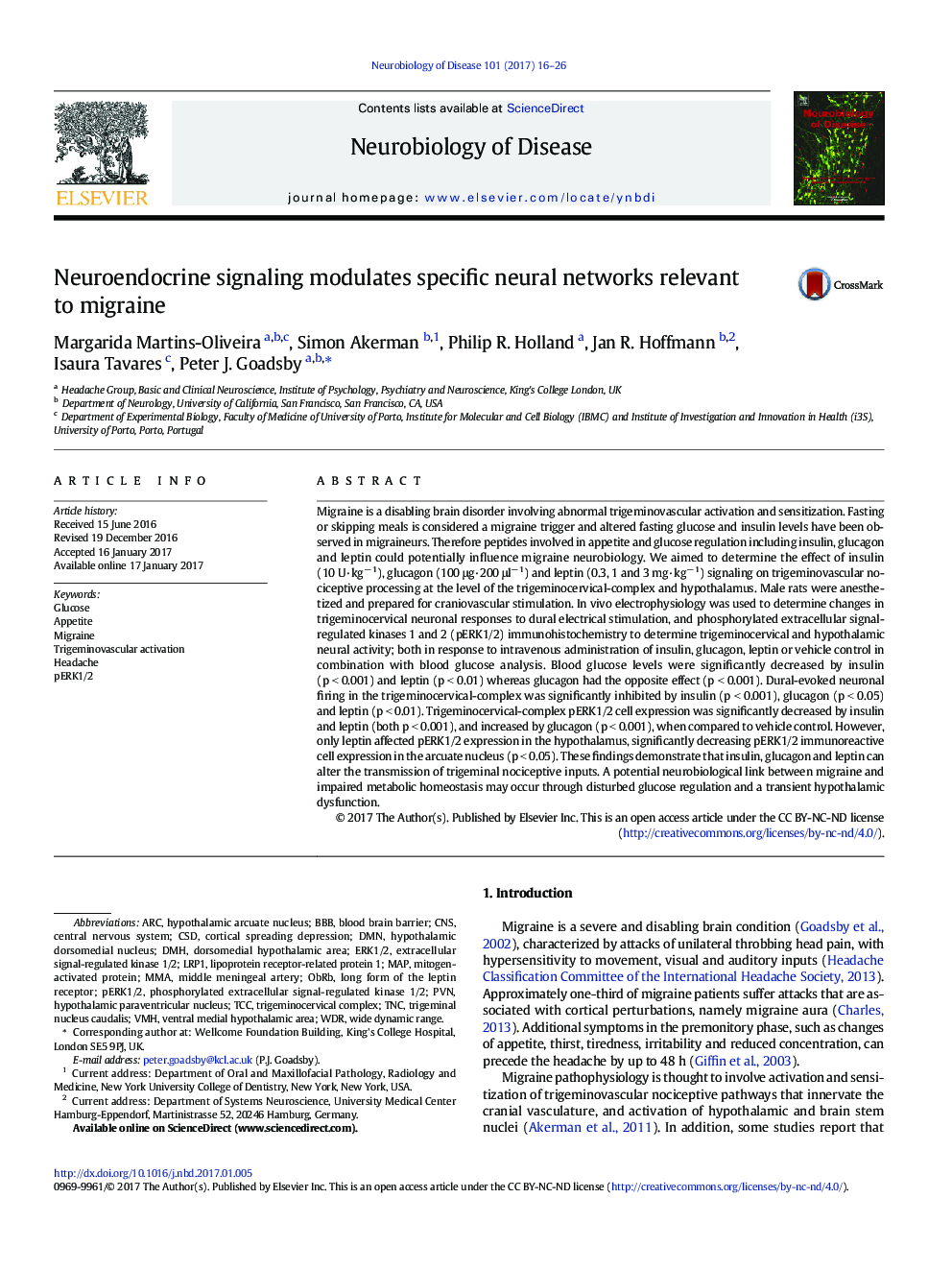| Article ID | Journal | Published Year | Pages | File Type |
|---|---|---|---|---|
| 5630503 | Neurobiology of Disease | 2017 | 11 Pages |
â¢Insulin and glucagon inhibit trigeminal nociception.â¢Inhibition by leptin is dose dependent suggesting potential multiple targets.â¢Insulin, glucagon and leptin directly modulate pERK1/2 expression within the TCC.â¢TCC neurons are glucose-responsive, potentially linking blood glucose levels to pain processing.
Migraine is a disabling brain disorder involving abnormal trigeminovascular activation and sensitization. Fasting or skipping meals is considered a migraine trigger and altered fasting glucose and insulin levels have been observed in migraineurs. Therefore peptides involved in appetite and glucose regulation including insulin, glucagon and leptin could potentially influence migraine neurobiology. We aimed to determine the effect of insulin (10 U·kgâ 1), glucagon (100 μg·200 μlâ 1) and leptin (0.3, 1 and 3 mg·kgâ 1) signaling on trigeminovascular nociceptive processing at the level of the trigeminocervical-complex and hypothalamus. Male rats were anesthetized and prepared for craniovascular stimulation. In vivo electrophysiology was used to determine changes in trigeminocervical neuronal responses to dural electrical stimulation, and phosphorylated extracellular signal-regulated kinases 1 and 2 (pERK1/2) immunohistochemistry to determine trigeminocervical and hypothalamic neural activity; both in response to intravenous administration of insulin, glucagon, leptin or vehicle control in combination with blood glucose analysis. Blood glucose levels were significantly decreased by insulin (p < 0.001) and leptin (p < 0.01) whereas glucagon had the opposite effect (p < 0.001). Dural-evoked neuronal firing in the trigeminocervical-complex was significantly inhibited by insulin (p < 0.001), glucagon (p < 0.05) and leptin (p < 0.01). Trigeminocervical-complex pERK1/2 cell expression was significantly decreased by insulin and leptin (both p < 0.001), and increased by glucagon (p < 0.001), when compared to vehicle control. However, only leptin affected pERK1/2 expression in the hypothalamus, significantly decreasing pERK1/2 immunoreactive cell expression in the arcuate nucleus (p < 0.05). These findings demonstrate that insulin, glucagon and leptin can alter the transmission of trigeminal nociceptive inputs. A potential neurobiological link between migraine and impaired metabolic homeostasis may occur through disturbed glucose regulation and a transient hypothalamic dysfunction.
